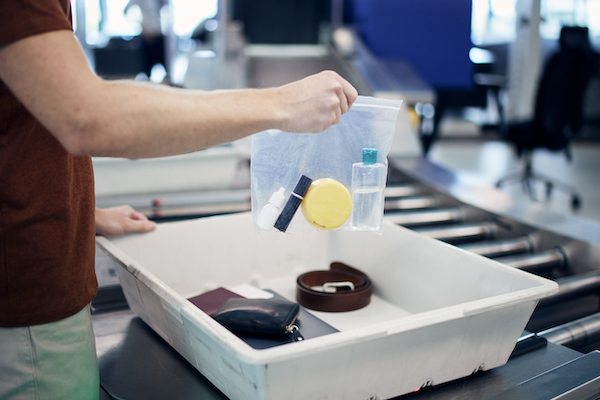EU airports blast bloc's decision to reinstate 100ml liquid rule from September
 Ilaria Grasso Macola
Ilaria Grasso MacolaThe trade body representing Europe’s airports has blasted the European Commission’s (EC) decision to reintroduce a blanket 100ml liquid rule across the bloc, including for those that have already upgraded to next-generation scanners, saying it will penalise them “operationally and financially”.
Earlier this week, the EC confirmed it would temporarily reintroduce liquid rules – even at airports that already have new C3 scanners – to improve performance.
C3 scanners are already being used at a number of airports across Europe and the European Economic Area (EEA); they allow passengers to carry liquids in quantities greater than 100ml and keep them in their carry-on luggage when they clear security, along with large electronic devices.
The commission said the rule would be reintroduced from 1 September and did not come in response to any new threat, but rather to guarantee the safety of air travel generally. The UK enacted a similar ruling earlier this year.
Trade body ACI Europe said bringing back a 100ml liquid rule would severely impact airports that have already deployed C3 scanners, likely reducing passenger throughput and causing operational issues.
ACI Europe said it would also import airports financially as C3 scanners are not only around eight times more expensive to install than a typical X-ray scanner, but they are also around four times more costly to maintain.
"Those airports which have been early adopters of this new technology are being heavily penalised both operationally and financially,” said ACI Europe director general Olivier Jankovec.
“The decision to now impose significant restrictions to their use questions the trust and confidence the industry can place in the current certification system for aviation security equipment.”
Jankovec also criticised the EC for failing to offer a precise timeline for when the restrictions will be lifted, and has called for a roadmap outlining the timetable.
In the UK, the Department for Transport (DfT) in June announced the liquid rule would be reintroduced at six UK airports – all ones that had already upgraded their scanners
Authorities said the changes, which affected London City, Teesside, Aberdeen, Leeds Bradford, Newcastle and Southend airports, would only affect “a small number of passengers” and – like the EC – didn’t come in response to a specific threat.
"This temporary move is to enable further improvements to be made to the new checkpoint systems and will only affect a small number of passengers," said a DfT spokesperson at the time.
In December 2022, Rishi Sunak’s government gave UK airports until early June 2024 to install next-generation scanners. However, it was in April forced to extend the limit by up to a year as many airports – including many of the UK’s biggest and busiest – could not meet the deadline.
Sign up for weekday travel news and analysis straight to your inbox

Ilaria Grasso Macola
Supplier Directory
Find contacts for 260+ travel suppliers. Type name, company or destination.














